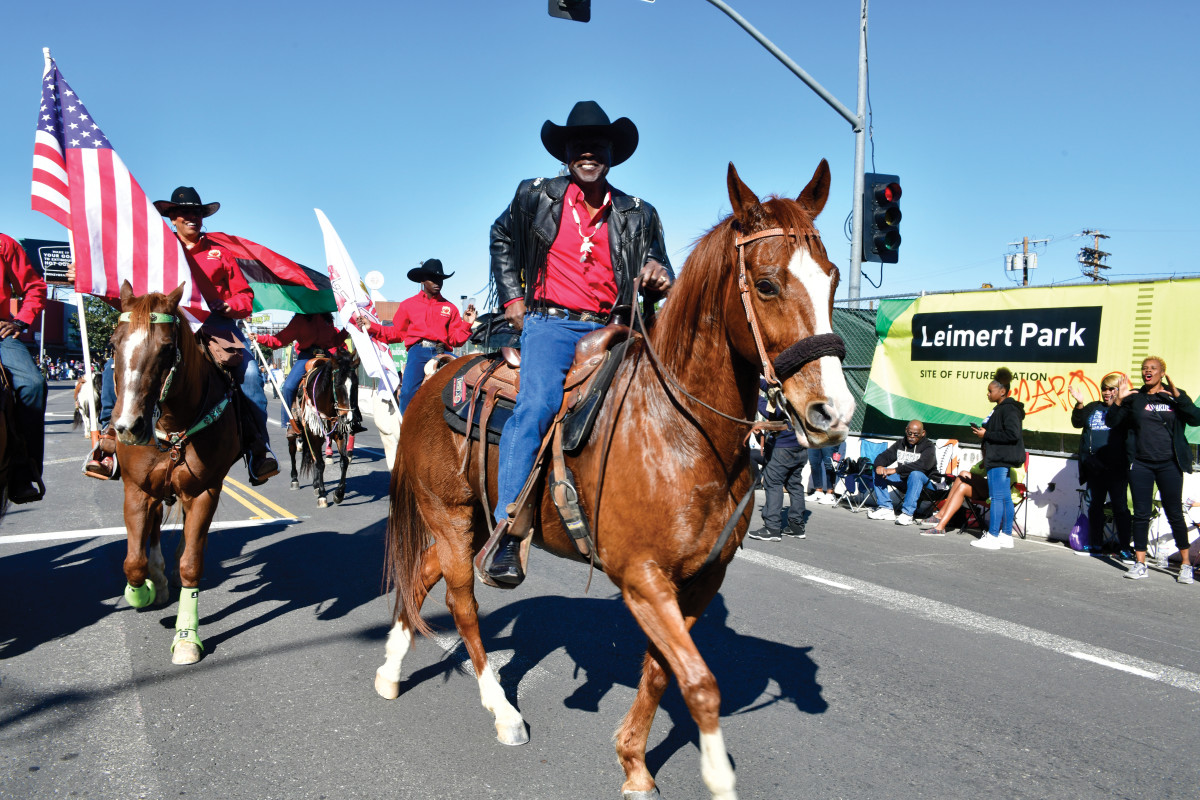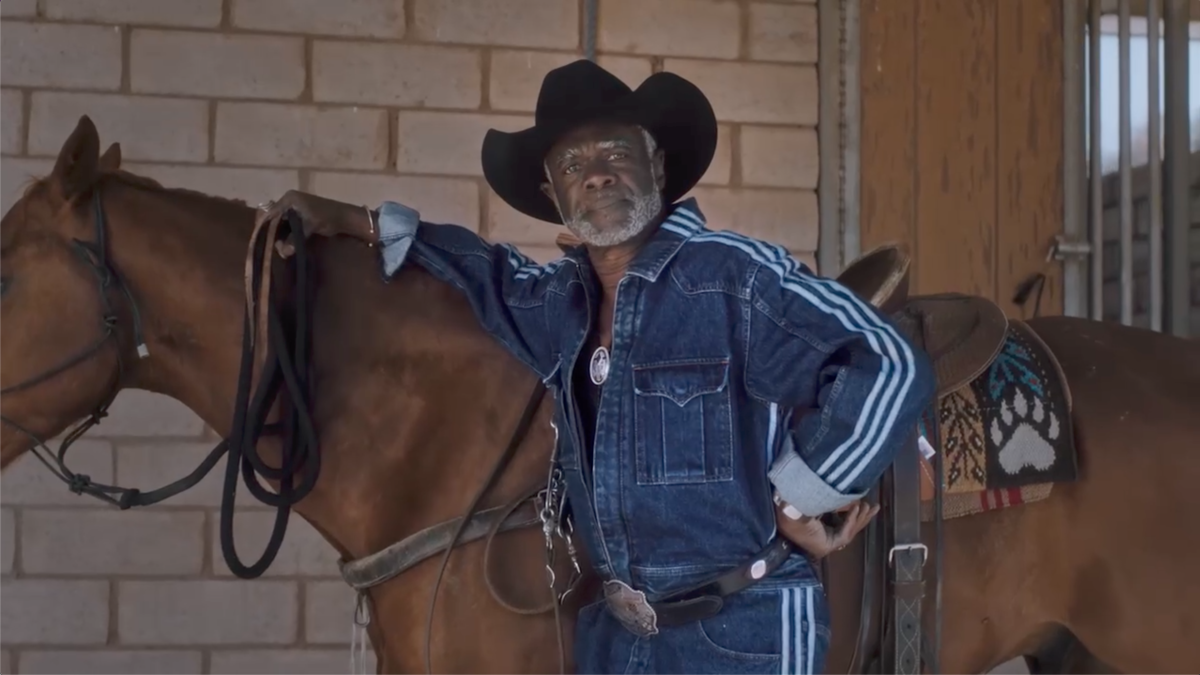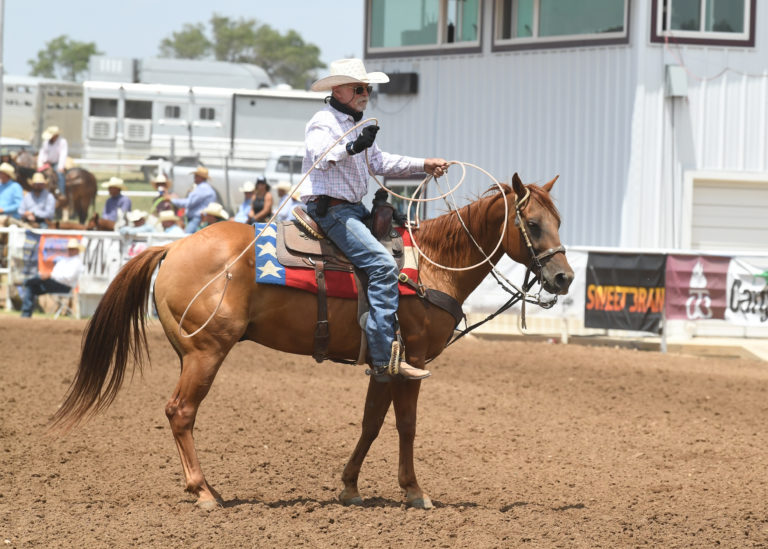On Instagram this summer, right in the midst of Cheyenne Frontier Days, the PRCA shared a post from Ivy Park. In truth, it appeared a little bizarre there. Where rodeo footage and commentary normally commanded the attention of a devoted following, suddenly there was a hip-hop music video featuring edgy, rodeo-inspired, but urban athletic fashion, promoted by music’s most award-winning female artist, Beyoncé.
The post—since deleted from the account—caused a shameful stir. But for those willing to look beyond the unfamiliar, looped in with the not-at-all Western music and dance styles was real and true team roping talent. Enter Glynn Turman.
Turman was born in early 1947 in New York City. At just 12 years old, he became a Broadway actor in 1959’s “A Raisin in the Sun,” playing the most junior member of the Younger family. The experience led to continuous opportunities on the stage and, by 1964, he had earned a regular role in prime-time television’s premiere soap opera, “Peyton Place.”
At the same time Turman was establishing his early acting career, though, he was also discovering horses.
“They were very prominent in New York,” Turman said of the mounted police who first caught his attention. “I was always fascinated, but it was the horses that I was attracted to. They had the greatest looking big, bay horses.
“But I was attracted to the junk man’s horse, too,” he continued about a time when New York’s city streets were still ridden horseback, and business was conducted from horse-drawn wagons. “When I was a kid, I would steal the fruit from the back of the wagon and run around and feed that same apple to the horse.”
Before long, Turman was bartering his labor in exchange for ride time with Central Park’s horsemen. By the time he was 21, however, his burgeoning acting career moved him to Los Angeles, where he landed a starring role in the cult classic film, “Cooley High.” Decades of success followed, with roles in too many television and movie pictures to name, but a few callouts include “A Different World,” “Touched by an Angel,” “Matlock” and, from more recent years, “The Wire,” “How to Get Away with Murder,” “Windows on the World” and, in 2020, “Ma Rainey’s Black Bottom.”
In those years, Turman raised four children—three from his first marriage and one from his third marriage to his wife and partner, Jo-An. In each marriage, including his second, to Aretha Franklin, he shared his love of horses and the Western lifestyle with his family, while expanding his own equestrian interests at the same time.

Courtesy Glynn Turman
“I was a struggling actor, but then I ended up doing fairly well and was able to buy a small place. We had our own horses, and I became an endurance rider with the Tevis Cup, and I was doing a lot of gymkhana with the kids. And then, I met a lot of stuntmen in the business, and they were mostly cowboys. They knew I was into horses, and I ended up on the rodeo circuit with these guys, going to jackpots. I did team penning for a long time and then, it was at a USTRC [event] that I took first in my division in Paso Robles and that got me a shootout to the Finals in Oklahoma City where we took fifth and, before I knew it, I was sporting buckles.”
Following the Rodney King riots in 1992, Turman and other notable figures in the Black community were challenged by Coretta Scott King (Dr. Martin Luther King, Jr.’s widow) to offer solutions to gang violence. In response, Turman and Jo-An founded the IX Winds Ranch Foundation and Camp Gid D Up. In the nearly 30 summers since, the couple has hosted countless disenfranchised youth from the L.A. area and taught them to ride horses and rope, as well as how to shoot a bow and swim and other camp activities over a multi-day getaway to the couple’s ranch.
In recent years, the camp model has shifted away from the overnight model, though, and Turman, now a great-grandfather in his 70s, says the focus is to support and enable the program’s rodeo kids.
“There’s been a lot of shifts, so we’re doing what we can to try and stay connected. It’s easier now to fund the kids who have an interest, and that lends itself, still, to the cowboy way of life. We still talk about the values and morals of being a cowboy.”
At one point during Turman’s youth, he was able to attend a rodeo at Madison Square Garden—an event that captured his heart and perhaps set him on his path to cowboydom. Knowing the impact of that event, he designed into his program the opportunity to for his kids to attend their own first-ever Bill Pickett Invitational Rodeo—an annual celebration of Black Western heritage—of which Turman is a Grand Marshall.
“The history of the Black cowboy is that, you know, one out of every four cowboys during the West were cowboys of color,” Turman explained. “And there are pockets of Black cowboys and Black cowgirls in the inner city who still look forward to that way of life.”
Turman’s acting career and humanitarian efforts have produced more than a few accolades, as well. He’s a 2011 inductee of Fort Worth’s National Multicultural Western Heritage Museum Hall of Fame, a three-time winner of the NAACP Image Award, a 2013 Los Angeles Stage Alliance Ovation Award, a 2019 Emmy Award winner for his role in “How to Get Away with Murder,” and a winner of the 2020 Los Angeles Film Critics Association Awards for his role in “Ma Rainey’s Black Bottom.”

Courtesy Glynn Turman
Through it all, however, he’s maintained his commitment to the Western community. The marriage between the two—Hollywood and roping—is what landed him and his granddaughter, Melinda Siegel, who runs barrels, a spot in Beyonce’s apparel campaign video. And the result is much more than hip-hop and Hollywood borrowing from rodeo. Rather, it’s an opportunity to show folks outside our community the history and heritage of the Black cowboy and cowgirl in the American West.
Interested in Barrel Racing? Check out our friends at BarrelRacingMagazine.com.
“They have horses and they have saddles and buckles and they’re right in the middle of the hood in some places,” Turman said. “And what has happened is, just like with all of us, the culture of cowboys and horses is kind of under siege right now. The businesses are trying to buy up those lots and spots where people have their horses, so we try to lend ourselves to making that a priority. Because, if we don’t recognize each other’s common problem here, we’re all going to lose out.”











